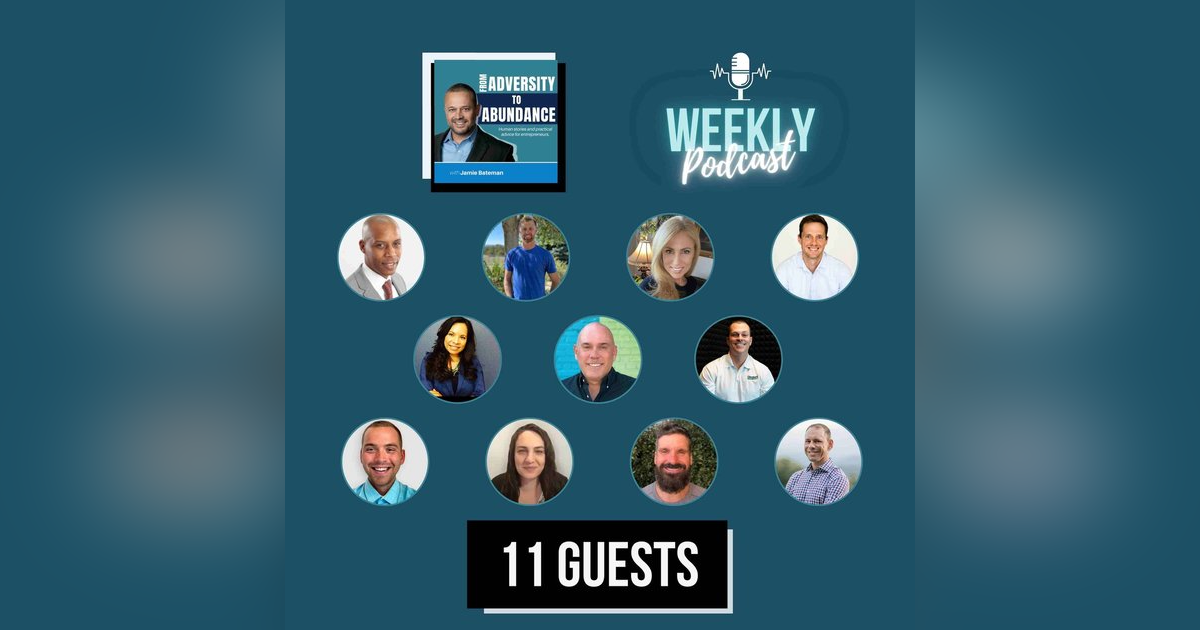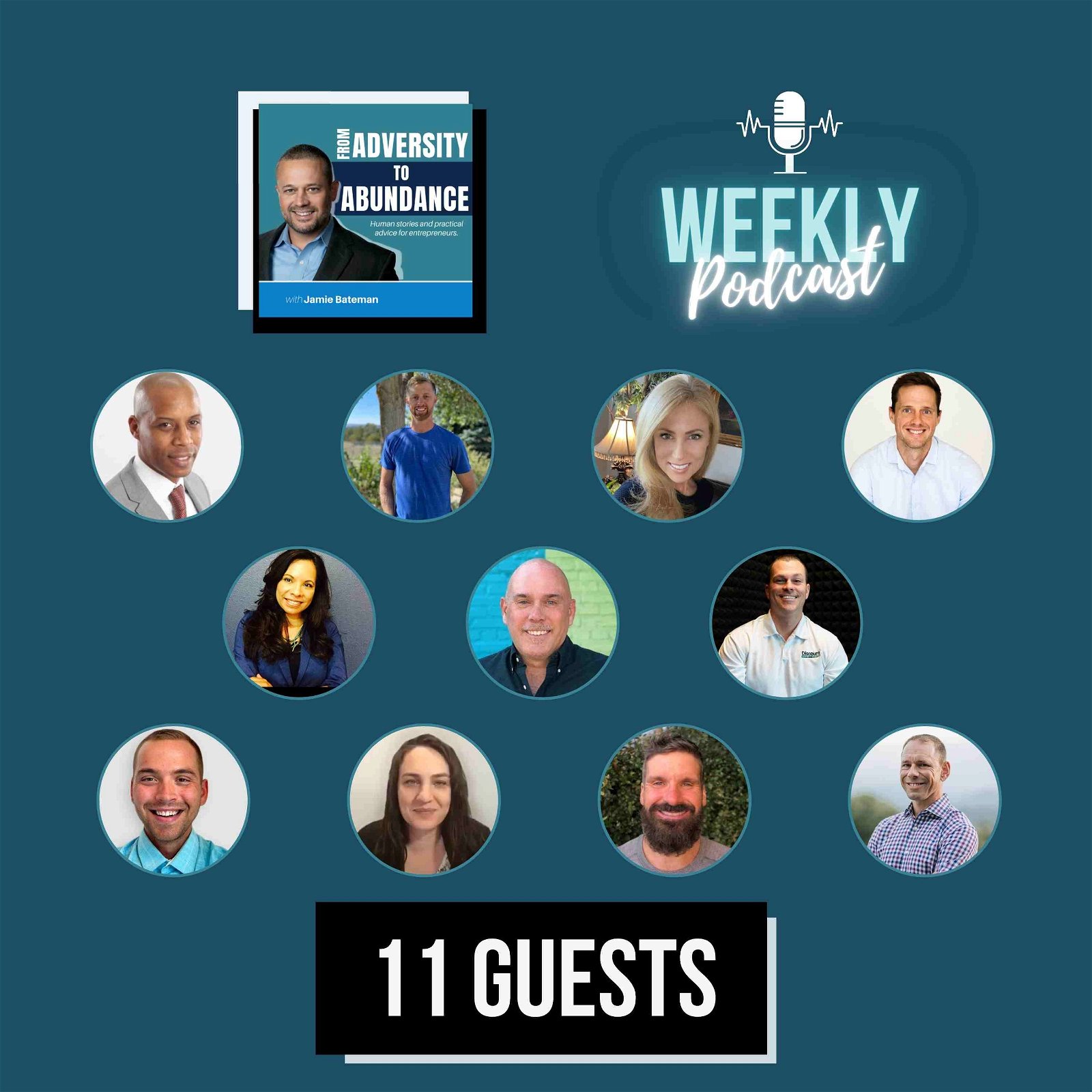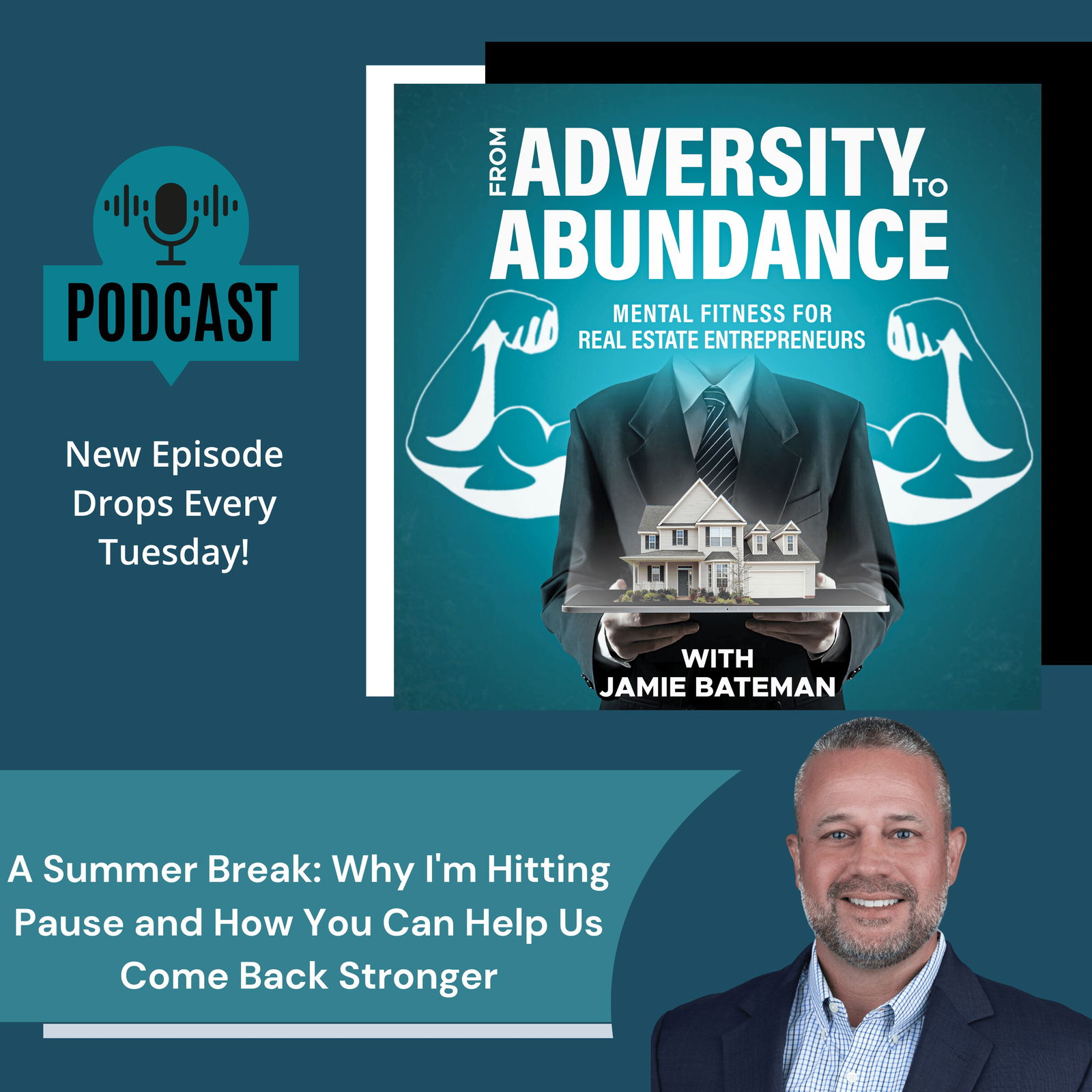From Adversity to Abundance: Inspiring Stories of Mental, Physical, and Financial Transformation


Does it sound familiar to feel stuck in a cycle of adversity and challenges? You may have been told to simply stay positive in order to overcome your struggles, but that advice often falls short, leaving you feeling frustrated and hopeless. The pain of trying to maintain a positive attitude without seeing any real progress can be disheartening. But there is a better way to achieve resilience and a growth mindset.
In this episode, you will hear from the 11 specials guests featured in our book, From Adversity to abundance inspiring stories of mental, physical and financial transformation . We have handpicked highlights from these guests’ stories on our podcast.
You'll hear from a diverse range of podcast guests, including Fuquan Bilal , Matt Izzo , Maricela Soberanes , Chris Larsen , Dan Haberkost , Beth Boisseau-Coots , Mark Owens , Matt Fore , David Dodge , Brent Bowers , and Emma Powell . Each guest shares their personal journey of overcoming challenges, embracing growth mindset, and finding success in various aspects of life.
Haven Financial:
https://www.myfinancialhaven.com/jamiebateman/
ATTENTION:
Unlock the secrets to a transformative life with “From Adversity to Abundance: Inspiring stories of Mental, Physical and Financial Transformation”. Buy your copy now and embark on a journey from challenges to triumphs!
AMAZON: https://www.amazon.com/dp/B0CGTWJY1D?ref_=pe_3052080_397514860
Connect with us
WEBSITE: https://www.adversity2abundance.com
Leave us a rating or review: https://www.adversity2abundance.com/reviews/new/ or here
Got comments, feedback or suggestions? We’d love to hear it! https://www.adversity2abundance.com/contact/
Follow From Adversity to Abundance Podcast
FACEBOOK: https://www.facebook.com/profile.php?id=100089126144055
INSTAGRAM: https://www.instagram.com/adversitytoabundancepodcast/
LINKEDIN: https://www.linkedin.com/company/89949391/admin/feed/posts/
YOUTUBE: https://www.youtube.com/@FromAdversity2AbundancePodcast
Connect with Jamie
BOOK: From Adversity to Abundance: Inspiring Stories of Mental, Physical, and Financial Transformation
LINKEDIN: https://www.linkedin.com/in/jamie-bateman-5359a811/
TWITTER: https://twitter.com/batemanjames





